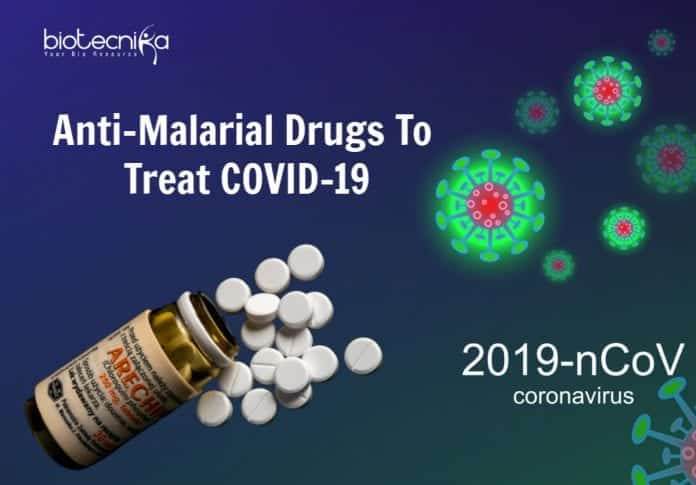Chloroquine To Treat Covid-19 – Everything You Need To Know
Two drugs, hydroxychloroquine, and chloroquine have to the front of the conversation, as the world’s health experts are racing to find a cure for the novel coronavirus.
President Donald Trump called these drugs used to treat malaria as game-changers and the US states are now taking measures to prevent the shortage of the drug in the middle of the novel coronavirus pandemic.
Gov. Andrew Cuomo said the New York is preparing to start the trials on Tuesday with 750,000 doses of chloroquine and 70,000 doses of hydroxychloroquine. Moreover, the federal government has received 3 million doses of Resochin (brand name of chloroquine) as a donation from the drug maker Bayer.
Chloroquine might need further clinical studies as its not a remedy for all difficulties. Three cases of chloroquine overdose have been already reported in Nigeria’s Lagos state since the drug came into the picture of Covid-19 treatment.
So what are these drugs exactly and what is their potential?
According to the US Centers for Disease Control and Prevention, Chloroquine is a drug used to treat as well as prevent malaria. Due to problems with resistance, it is not recommended for
use in severe malaria since 2006, particularly in the region of Oceania.World Health Organization has included the drug in the list of essential medicines to keep it accessible and affordable always.
Chloroquine is a derivative of quinine. In 1820, French chemists isolated it from the bark of the cinchona tree found in South America and used it for the treatment of fever.
In 1934, German scientists synthesized chloroquine for the first time as an anti-malarial. After World War II, Chloroquine became one of WHO’s principal weapons to eradicate malaria, along with DDT.
Hydroxychloroquine is the analog of chloroquine, meaning Hydroxychloroquine and Chloroquine have similar structures, but different biological and chemical properties. Studies show that Hydroxychloroquine is the less toxic derivative. It is administered in patients with lupus, rheumatoid arthritis, and the blood disorder porphyria cutanea tarda.
The drug has been proved to be effective against both SARS and SARS-Cov-2 viruses. Scientists are studying if Hydroxychloroquine can be used to prevent or treat Covid-19 in patients.
Since the drug has been in use for years, any potential risks can be ruled out and we know for sure that even if chloroquine couldn’t treat Covid-19, it is not going to kill anyone.
Research published in the journal of Bioscience Trends has shown that chloroquine phosphate exhibited acceptable safety and apparent efficacy in treating Covid-19 associated pneumonia in trials in China.
China and several other countries are using both the drugs for Covid-19 treatment, CDC said.
While announcing the drug donation, Bayer said in a statement about Chloroquine’s broad-spectrum antiviral properties and it’s immune response effects.”New data from initial preclinical and evolving clinical research conducted in China, while limited, shows potential for the use of Resochin in treating patients with COVID-19 infection,” the statement said.
But experts say, the evidence is not fully reliable. Although a small study demonstrated that the combination helped against SARS-Cov-2, it did not assess clinical benefits. The combination of two drugs might disrupt the electrical activity of the heart and hence the CDC has warned to not use the combination in patients with chronic medical conditions like hepatic disease or renal failure.
The side effects of chloroquine include vomiting, nausea, seizures, deafness, low blood pressure, and vision changes. Both hydroxychloroquine and chloroquine are reportedly well-tolerated in the novel coronavirus patients, according to the CDC.
However, Dr. Anthony Fauci, director of the National Institute of Allergy and Infectious Diseases said that the effectiveness of the drugs with respect to the novel coronavirus has not assessed in a clinical trial, therefore the evidence is only anecdotal. More data is required to prove that the combination is effective and safe against Covid-19.
Despite Trump’s claim on Thursday, the USFDA (US Food and Drug Administration) has not approved the drug for Covid-19 treatment yet. It is still working with the government universities and agencies to study whether chloroquine can be administered on mild to severe Covid-19 patients to reduce the symptoms.
The FDA commissioner, Stephen Hahn said in a statement that they need to ensure if chloroquine can treat Covid-19, otherwise it would be risking the life of the patient with an ineffective drug while they could have used another. A clinical trial of the drug would be required.
The FDA has asked the pharmaceutical companies to scale up the production of the drug to ensure a spike in demand can be handled and at the same time, patients with life-threatening diseases like lupus can receive the drugs.
Drugs like remdesivir that have a broad antiviral activity also require further study to prove their effectiveness against Covid-19.































Good morning sir ye mam…I complete m sc biotechnology..